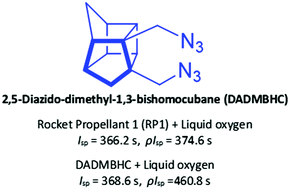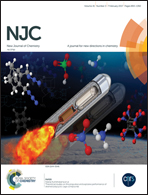Theoretical studies on the propulsive and explosive performance of strained polycyclic cage compounds
Abstract
Compounds consisting of a carbon-based cage have a highly strained molecular structure and have become the subject of interest in recent years because they possess high heat of formation and so are highly energetic. In the present work, ab initio molecular modelling calculations have been used for analysing 28 carbon-cage structures with the aim of identifying the best candidates for synthesis particularly for use in propellant compositions. Density functional theory (B3LYP) was employed for the geometry optimisation of the proposed molecules using the 6-311++G(d,p) basis set. Calculated heats of formation and densities of the compounds have been used from the optimized structures to compute their specific impulses and density specific impulses in various configurations (solid and liquid) with an eye on propulsion applications. Detonation properties of the compounds have also been reported and comments have been made correlating the properties of the cage compounds with their molecular structures.



 Please wait while we load your content...
Please wait while we load your content...